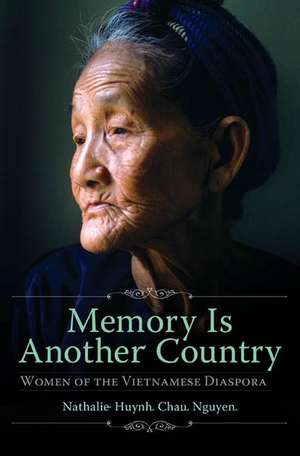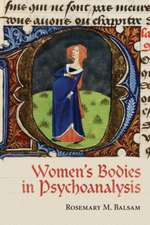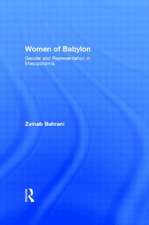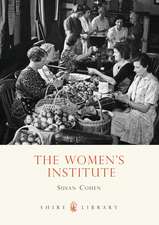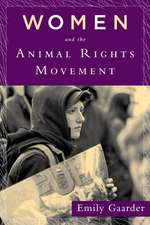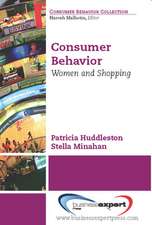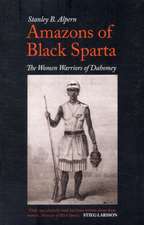Memory Is Another Country: Women of the Vietnamese Diaspora
Autor Nathalie Huynh Chau Nguyenen Limba Engleză Hardback – 24 aug 2009 – vârsta până la 17 ani
Preț: 307.94 lei
Preț vechi: 358.47 lei
-14% Nou
Puncte Express: 462
Preț estimativ în valută:
58.94€ • 64.05$ • 49.54£
58.94€ • 64.05$ • 49.54£
Carte tipărită la comandă
Livrare economică 21 aprilie-05 mai
Preluare comenzi: 021 569.72.76
Specificații
ISBN-13: 9780313360275
ISBN-10: 0313360278
Pagini: 228
Ilustrații: plates, black & white plates
Dimensiuni: 156 x 235 x 23 mm
Greutate: 0.5 kg
Editura: Bloomsbury Publishing
Colecția Praeger
Locul publicării:New York, United States
ISBN-10: 0313360278
Pagini: 228
Ilustrații: plates, black & white plates
Dimensiuni: 156 x 235 x 23 mm
Greutate: 0.5 kg
Editura: Bloomsbury Publishing
Colecția Praeger
Locul publicării:New York, United States
Notă biografică
Nathalie Huynh Chau Nguyen holds an ARC Australian Research Fellowship at the Australian Centre, School of Historical Studies, University of Melbourne. She was shortlisted for the 2007 NSW Premier's Literary Award for Voyage of Hope: Vietnamese Australian Women's Narratives (2005).
Recenzii
Nguyen makes a brilliant contribution to the third wave of scholarship.Her focus on women is valuable.pathbreaking book.Essential. All levels/libraries.
Nathalie Huynh Chau Nguyen's book fills an important gap in current scholarship on South Vietnamese women's experiences during war and in diaspora. . . . The personal stories of the women interviewed are vividly narrated and rich in detail. . . . The stories recounted here are an important part of modern Vietnamese history. History often privileges victors. After the South's defeat in 1975, pro-South Vietnamese women's stories have been rarely heard, and they deserve to be. Nguyen's book fills the void and in so doing enriches the existing scholarship on memory, trauma, and diaspora.
The 'living history' that this book represents is a beautifully realized portrait of ordinary women who were forced into extraordinary lives.
Similar in style to Jung Chang's enthralling accounts of revolutionary China (Wild Swans: three daughters of China, 1991), this book revisits the final days of the American war through the eyes of Vietnamese women. The stories are deeply personal, compelling, and eloquently retold.
Nguyen's very accessible and engaging work will be of interest to both an academic audience of students and scholars and the broader audience with an interest in women's studies, ethnic studies, refugee studies, and Asian-American studies.
This is a poignant and beautifully presented work about a community most Australians have lived alongside for decades. Reading it should jolt us out of our complacency.
One of the strengths of this collection is that the women all had different experiences that they reacted to differently. Therefore, while loss, devastation and grief can't be escaped as a common theme, the women do not blend into archetypes. The chapters begin with loss, symbolized by the family photographs that were lost or destroyed. The difference in the recollections of two sisters who shared the same traumas is particularly interesting. Other chapters focus on female soldiers, war memories, intermarriage outside the culture, both before and after leaving Viet Nam and the reactions of those who returned to visit as well as those who refused to do so. The 'living history' that this book represents is a beautifully realized portrait of ordinary women who were forced into extraordinary lives.
.author Nathalie Huynh Chau Nguyen offers compelling first-person accounts by women who fled Vietnam in 1975.
Nathalie Huynh Chau Nguyen's book fills an important gap in current scholarship on South Vietnamese women's experiences during war and in diaspora. . . . The personal stories of the women interviewed are vividly narrated and rich in detail. . . . The stories recounted here are an important part of modern Vietnamese history. History often privileges victors. After the South's defeat in 1975, pro-South Vietnamese women's stories have been rarely heard, and they deserve to be. Nguyen's book fills the void and in so doing enriches the existing scholarship on memory, trauma, and diaspora.
The 'living history' that this book represents is a beautifully realized portrait of ordinary women who were forced into extraordinary lives.
Similar in style to Jung Chang's enthralling accounts of revolutionary China (Wild Swans: three daughters of China, 1991), this book revisits the final days of the American war through the eyes of Vietnamese women. The stories are deeply personal, compelling, and eloquently retold.
Nguyen's very accessible and engaging work will be of interest to both an academic audience of students and scholars and the broader audience with an interest in women's studies, ethnic studies, refugee studies, and Asian-American studies.
This is a poignant and beautifully presented work about a community most Australians have lived alongside for decades. Reading it should jolt us out of our complacency.
One of the strengths of this collection is that the women all had different experiences that they reacted to differently. Therefore, while loss, devastation and grief can't be escaped as a common theme, the women do not blend into archetypes. The chapters begin with loss, symbolized by the family photographs that were lost or destroyed. The difference in the recollections of two sisters who shared the same traumas is particularly interesting. Other chapters focus on female soldiers, war memories, intermarriage outside the culture, both before and after leaving Viet Nam and the reactions of those who returned to visit as well as those who refused to do so. The 'living history' that this book represents is a beautifully realized portrait of ordinary women who were forced into extraordinary lives.
.author Nathalie Huynh Chau Nguyen offers compelling first-person accounts by women who fled Vietnam in 1975.
